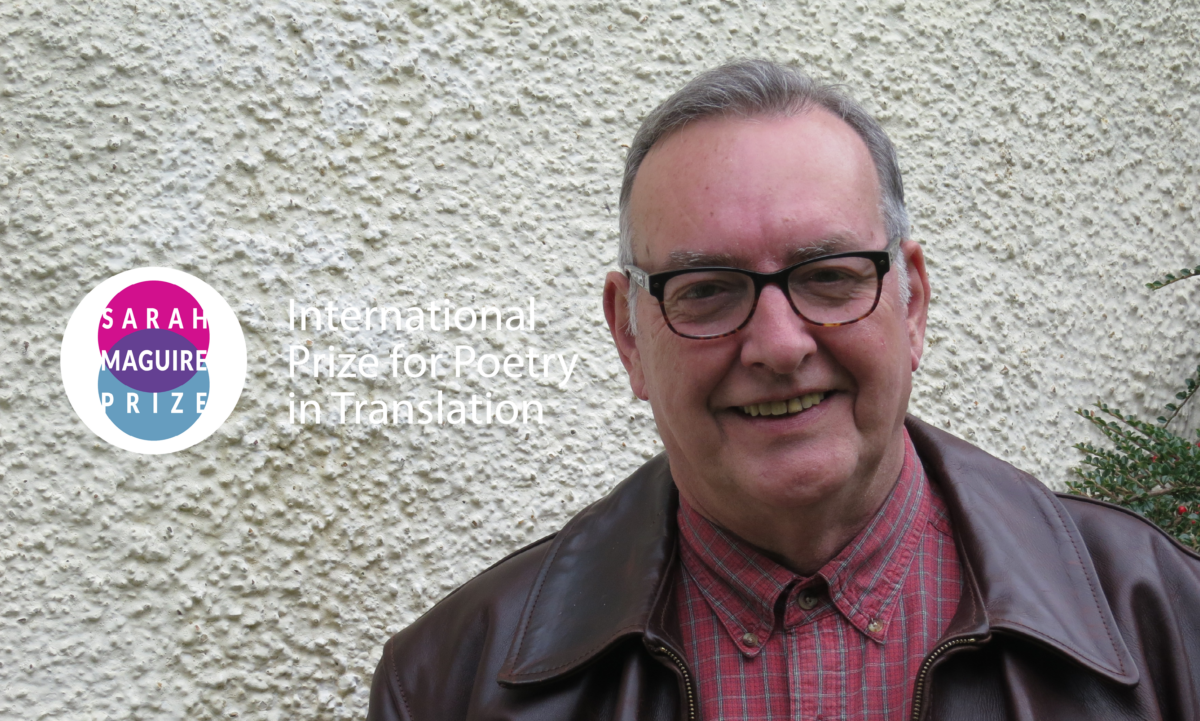How Did I Get Here?
By: Brian Holton


I’ve worked with Yang Lian since 1993, when we began Non-Person Singular (1994): between then and Anniversary Snow (2019), there are nine book-length poems or collections, two anthologies of his work, another two of contemporary Chinese poetry, as well as pamphlets, art books, and contributions to anthologies and magazines. I’m working on a new collection, too.
How did I get here? My father was Irish, English-French bilingual, with Latin and Greek and fluent Hausa, my mother a Scots speaker from the Borders, and until I started school in Edinburgh in 1955, we lived in Lagos, where the household language was West African Pidgin: my grandfather Samuel McDiarmid Young, a cousin of the poet Hugh McDiarmid, spoke French, so I grew up Scots-English bilingual, familiar with several languages.
I still remember the shock, that summer I turned eleven, when I picked up a poetry book of my grandfather’s: the first poem I read was Yeats’ The Host of the Air. I was transported. I had learned poems at primary school, but nothing had touched me like that did.
By the time I was applying for university, with Highers in Latin, Greek, French and English, my days were filled with poetry and music (I played recorder, trombone, and clarinet, and was learning guitar). One day in the Galashiels Academy library, I found Arthur Waley’s 170 Chinese Poems and then, Pound’s Cathay. Another thunderbolt: I had never thought that Chinese people wrote poetry! That year, Edinburgh University opened a Department of Chinese, and there I studied, graduated, and later did research and lectured.
I first encountered Yang Lian’s work in Hangzhou in 1988, when I found a best-selling anthology of poetry by the Menglong group, of which Yang was a member: this was a time when these poets were as wildly popular as western rock stars, and they too could have filled stadiums had they been allowed to.
I moved to London in June 1989, where I met John Cayley, who asked me to translate some of Yang’s poems for an anthology which appeared in 1994 as Under-sky Underground.
In the spring of 1993, teaching at Durham, I was summoned to the telephone: a rich growly Beijing voice told me it was Yang Lian, changing planes between Berlin and Sydney, and would I like to translate his complete shorter poems?
I said yes, and that was how Non-Person Singular came into the world, via John Cayley and his WellSweep Press.
A year or two later, we met Neil Astley at Morden Tower in Newcastle, where Yang and I were reading, and he asked if Bloodaxe Books could publish our next book: that became Where The Sea Stands Still (1999), and since then we have published four more collections with Bloodaxe, and four with Shearsman Books, including Anniversary Snow.
Our first collaboration was laborious. Yang’s English was very poor, he had no computer, and neither of us had access to Chinese word-processing or email, so it had to be done by post. I’d write out a list of queries in my best Chinese handwriting, and post it to him, then he would answer in detail, by hand. I guess it would take 3-4 weeks for each letter to be answered. But it set a pattern which endures.
First of all, he sends me the poems, which I print out. Then I go through them with the dictionaries, making my notes in pencil. Next, I write out a first draft in longhand in my jotter, and every few days, enter a second revised draft onto disk. Sections of that will be revised or polished every week or so, and several pages at a time emailed to Yang for his comments and suggestions. The process concludes with a revision at the end of each section, and another at the end of each book.
We have developed a close working relationship over the years, but from the very start, he seemed to know exactly what a translator needs. He’ll often write a paragraph in response to my query, outlining what he had in mind, setting the line in context, teasing out ambiguities and multiple meanings.
For our first book, I didn’t know how close I was to getting his voice right until we met for the first time at the London Poetry International in 1994: we had about an hour to rehearse, but to our surprise, we quickly found that I had captured the cadences of his Chinese in my English, and when we read some of the poems line-by-line on stage that same day, it actually worked very well.
The English voice I made for Yang Lian sounds like my own voice now. I wonder what I would have sounded like if I had never met him?
2nd March, rev. 19th March, 2021
Melrose

